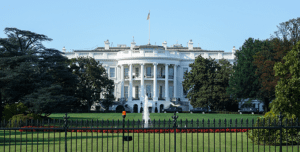Commentary: Why won't UC clinics serve patients with state-funded health insurance? – Kenosha News

One in three Californians are insured through Medi-Cal — the state’s health insurance program for low-income residents. Yet very few of these patients are able to get care through the University of California’s health systems.
Only a tiny fraction of primary care patients seen at UC clinics have Medi-Cal coverage. In some sites, it’s as little as 1% — even in areas with high numbers of Medi-Cal enrollees. The reason for this lack of access, according to UC administrators, is because state reimbursements for Medi-Cal patients don’t cover the cost of treating them.
It’s even worse for Medi-Cal patients seeking medical specialists, such as neurologists, orthopedic surgeons and cardiologists. Most UC specialty clinics won’t take Medi-Cal at all.
Here’s an example from our experience as UC doctors: A 45-year-old woman gets a breast cancer diagnosis at a community clinic near a UC hospital or in a UC hospital emergency department. The woman is insured by Medi-Cal. The next step requires a consultation with a surgeon and a cancer specialist.
People are also reading…
What are her options? After she has received her diagnosis, she can’t be seen in a UC surgery or cancer clinic since they don’t accept her insurance. Essentially, a state-owned hospital isn’t accepting her state-funded health insurance. So, she or her primary care provider will need to find appointments with specialists at a place that accepts Medi-Cal. Sometimes those providers have less expertise than would be available at a UC hospital.
Since income levels and race are often correlated, this also means that the UCs are disproportionately excluding people of color. How can this de facto racist policy be acceptable?
Our six great UC medical schools have three guiding missions: to enhance the health of the public through research, to train tomorrow’s healthcare providers and to provide health services to Californians.
While the UC system performs admirably on the first two, it has shirked its responsibility on the third. Most UC-affiliated health facilities provide little to no care to poor patients whose health insurance is provided by Medi-Cal.
What message does this send to taxpayers who fund these medical schools, when a large percentage of them cannot get care at UC-affiliated medical centers? What message does it send to tomorrow’s doctors, nurses and pharmacists? We are teaching them that it is OK to cherry-pick profitable patients and hope others in the community will provide care for the rest.
In the late ’80s, when we were beginning our academic careers in the UC system, it would have been considered highly unprofessional and inappropriate for a physician-in-training or a faculty member to inquire about a patient’s insurance status. Any physician who did this would have received stern counseling from supervisors, but now such a question is common and reflects a culture that accepts profit over compassion.
The UC health leadership has long argued that it wants to treat Medi-Cal patients but cannot negotiate contracts that would cover the cost. They point to UC partnerships with county facilities and free or low-cost clinics to care for these patients. However, these primary care clinics can do only so much without backup from medical specialists.
The fact is, annual revenues at some UC health campuses exceed expenses by more than $100 million. The administrators argue that this excess money subsidizes medical school and main campus operations, and if they were to allocate some of that amount toward making up any budget shortfall incurred when treating Medi-Cal patients, the system would be in a vulnerable position.
But private hospitals in California take Medi-Cal patients with the same reimbursement and make it work financially — even if Medi-Cal compensates the hospital poorly. Then why are UCs not accepting these patients? Why can’t the UCs adopt some of the strategies that allow other hospitals to do so, or use some of their excess earnings toward covering Medi-Cal enrollees, or ask the state for more money to do so?
As it stands now, the UC health system is providing highly profitable state-of-the-art treatments to a select (and, often, privileged and white) group of Californians, while barring the door to some 14 million low-income Californians.
We propose that the UCs start by setting mandatory minimums for the number of Medi-Cal patients seen in primary care clinics, specialty clinics and elective inpatient services, and publicly report actual numbers annually. Before fully taking on their fair share of Medi-Cal patients, they could start small, say 5% or 10% for each of these three categories and see what fiscal effect that has. If, after making their care processes more efficient, the UC facilities still cannot afford to care for patients at current reimbursement levels, they could lobby the state and harness public sentiment to become a leading advocate for better compensation rates.
Silently excluding the least powerful people in our society is not an acceptable solution. Why are the governor and state legislators letting UC medical centers ignore this moral and social responsibility?
(Michael Wilkes is a professor of medicine and global health at UC Davis and senior health correspondent for KCRW-FM. David Schriger is a professor emeritus and vice chair of the department of emergency medicine at UCLA.)
©2022 Los Angeles Times. Visit at latimes.com. Distributed by Tribune Content Agency, LLC.
Copyright 2022 Tribune Content Agency.
Get opinion pieces, letters and editorials sent directly to your inbox weekly!


